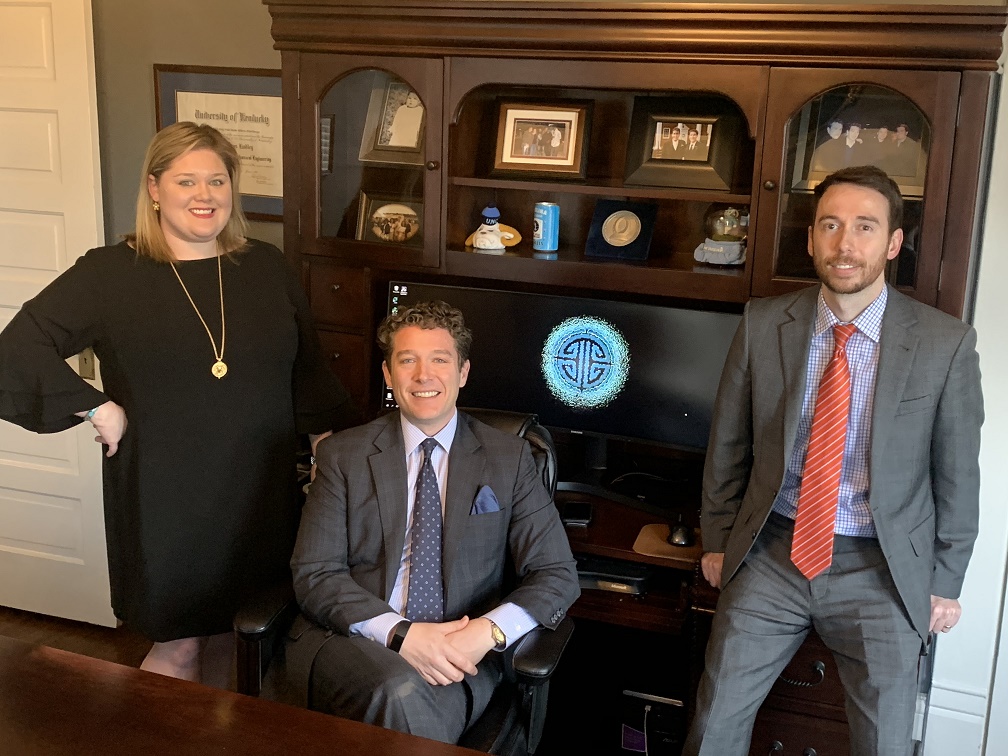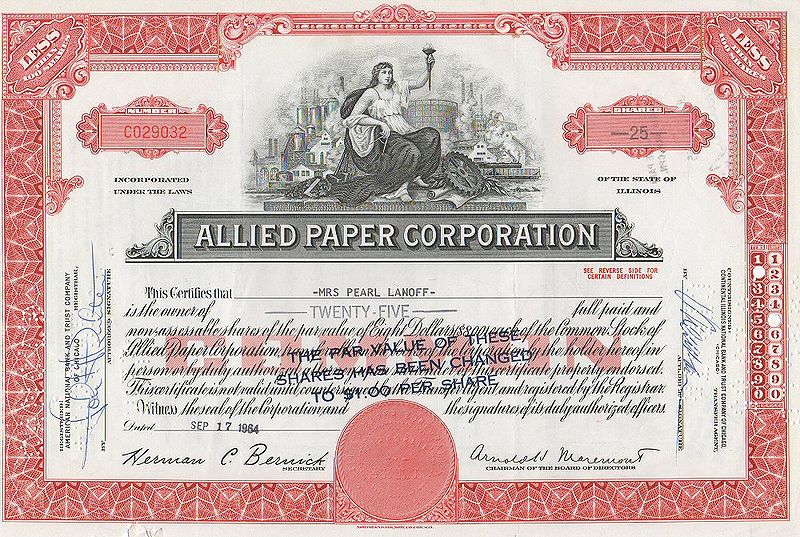Lindley Law is pleased to announce its recognition by the 2020 edition of Super Lawyers. Trey Lindley was selected as a Super Lawyer in Estate and Trust Litigation, his third consecutive year receiving this award. Trey was previously recognized as a Rising Star by Super Layers Magazine from 2012 through 2017, making this his ninth consecutive honor from the publication. Satie Munn and Kevin Cleys were selected as 2020 Rising Stars by Super Lawyers Magazine. This is Kevin’s first year receiving this award for Civil Litigation. This is Satie’s second consecutive year receiving the award for Rising Star in Estate and Trust Litigation. Each year, Super Lawyers recognizes the top…
-
-
PIERCING THE CORPORATE VEIL IN NORTH CAROLINA
In North Carolina, as in all states, a shareholder or owner of a business is generally not personally liable for the debts of the business. Additionally, Business A is generally not liable for the debts of Business B, even if the two businesses are associated entities. However, a recent North Carolina Court of Appeals decision illustrates that these limits on extended liability for corporate debts are themselves limited by the concept of piercing the corporate veil. The Court of Appeals Decision In General Fidelity Insurance Company v. WFT, Inc., et al., General Fidelity Insurance Company (“General Fidelity”) contracted with WFT, Inc. (“WFT”), for whom co-defendant Peter J. Willis…
-
SETTLEMENT PUTS STOP TO “WE CAN’T STOP” COPYRIGHT INFRINGEMENT LAWSUIT
Musician Miley Cyrus, record label RCA Records, and songwriter Michael May (a/k/a Flourgon) settled the parties’ dispute over Cyrus’s hit song “We Can’t Stop.” Flourgon alleged Cyrus’s hit unlawfully infringed copyrighted material in his previously recorded song “We Run Things.” What does the U.S. Copyright Act of 1976 (the “Copyright Act”) provide regarding music, and what damages are available to the owner of an infringed copyright? The Basics of Copyright Law As discussed in Lindley Law’s prior blog post, a copyright protects an original work of authorship “fixed in any tangible medium of expression.” “Copyright” is not a single right, in the literal sense. Instead, it refers to…
-
WHAT IS A WILL CAVEAT?
A will caveat is a special proceeding in which parties can challenge the validity of a document purporting to be the last will and testament of the decedent. The question to be answered is whether the purported will is valid. As a result, admissible evidence and potential remedies are limited to a determination of that question. Initiating Steps A caveat proceeding is initiated when an individual (the “decedent”) dies, leaving behind a document purporting to be his or her will. The purported will is submitted to the clerk of court to be probated. Any interested party – any party with a pecuniary or beneficiary interest in the decedent’s…
-
THIRD PARTY BENEFICIARIES TO CONTRACTS
ABC Seller agrees to sell 100 widgets to XYZ Buyer for $10 per widget. This agreement creates a contract, which largely governs the rights and obligations of ABC Seller and XYZ Buyer. However, contracts such as this often impact additional entities or individuals beyond the parties themselves. For example, ABC Seller may need to contract with a manufacturer, who in turn may need to contract with components manufacturers, to honor XYZ Buyer’s order. ABC Seller and/or XYZ Buyer may need to contract with a shipping company to deliver the widgets. To the extent XYZ is selling the widgets to an end user, the end user will also benefit from the…
-
TORTIOUS INTERFERENCE WITH CONTRACT
Last week, Lindley Law discussed the elements of tortious interference with expected inheritance, which can occur when an individual maliciously interferes with the making or revocation of a will to the detriment of the plaintiff. This blog will address a similar but distinct tort: tortious interference with contract. The Elements In North Carolina, to prove tortious interference with expected inheritance, a plaintiff must allege: A valid contract existed between the plaintiff and a third party, which conferred contractual rights upon the plaintiff against the third party; The defendant had actual knowledge of the contract between the plaintiff and the third party; The defendant intentionally induced the third…
-
TORTIOUS INTERFERENCE WITH EXPECTED INHERITANCE
North Carolina recognizes a cause of action for tortious inference with expected inheritance. This cause of action can be confused with tortious interference with prospective economic advantage, which occurs in the context of a contract or potential contract. Conversely, tortious interference with expected inheritance occurs in the context of a will or estate, rather than in the context of a contract or potential contract. Further, unlike a cause of action for undue influence, which permits recovery by the testator (the person executing the will), tortious interference with expected inheritance permits recovery by the individual expecting to benefit from the testator’s will. The Elements To prove tortious interference with…
-
“ROBOCALLS” AND THE FIRST AMENDMENT: A LEGISLATIVE UPDATE
In a recent blog post, Lindley Law discussed the Fourth Circuit Court of Appeals ruling in Ameican Association of Political Consultants, Inc. v. FCC, which addressed First Amendment questions regarding the regulation of “robocalls” related to debt collection for government-backed loans. The United States Congress recently announced proposed legislation to combat the practice of robocalling: the Pallone-Thune TRACED Act (the “TRACED Act”). The Proposed Legislation The TRACED Act will combine and reconcile the Telephone Robocall Abuse Criminal Enforcement and Deterrence Act, which passed in the Senate in May, with the Stopping Bad Robocalls Act, which passed in the House of Representatives in July. The separate bills created new…
-
DISINHERITED SPOUSES AND THE RIGHT OF ELECTIVE SHARE
Ric Ocasek, famed singer for The Cars, recently passed away leaving behind a will that purportedly removes his estranged wife, Paulina Porizkova, as a beneficiary of his estate. Ocasek and Porizkova were in the process of divorcing when Ocasek died; however, the divorce was not finalized, and the two were still legally married. Removing one’s spouse from an estate plan – often referred to as disinheriting a spouse – is common, particularly when spouses are separating and divorcing. States that have adopted the Uniform Probate Code, or similar statutes, create protection for a disinherited spouse in the form of the right of elective share. What is Elective Share? …
-
WHAT IS THE SERVICEMEMBERS CIVIL RELIEF ACT?
In honor of the upcoming Veterans Day holiday, this blog post will discuss the Servicemembers Civil Relief Act (the “SCRA”), which provides specific protections for those in active duty military service, as well as their dependents. The SCRA’s Specified Protections The SCRA was enacted in 2003 and recognizes that those in active duty military service may not be able to participate in certain civil affairs, and creates certain protections for those who qualify. Default judgment protection. In order to obtain a default judgment against a defendant who failed to make an appearance in the proceeding, the plaintiff must file an affidavit certifying whether or not the defendant…








